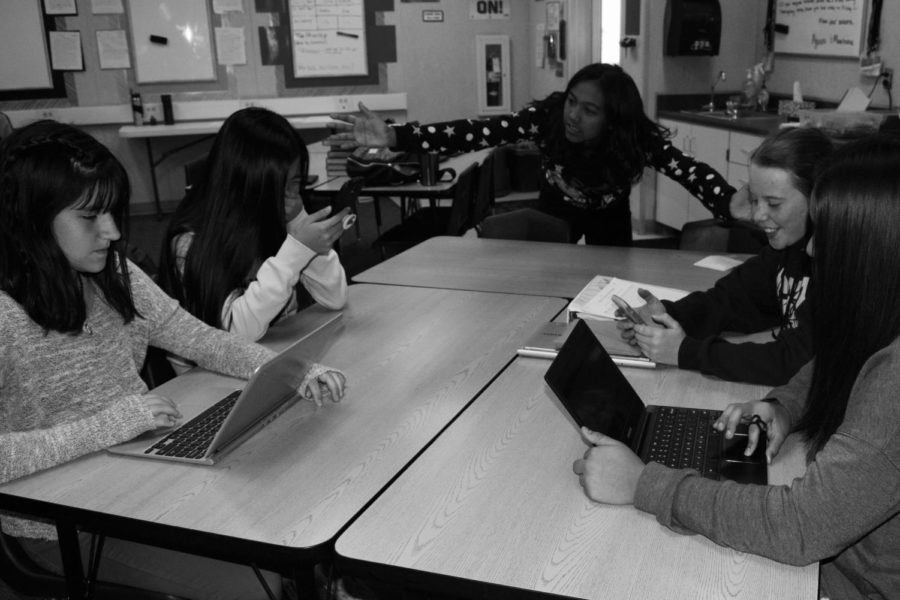Technology is Making Us Socially Awkward
Why text people when you can talk to them face-to-face?
December 5, 2017
Hey Jack, come outside and meet your friend.
No, Mom. I’m texting him right now. I don’t need to talk to him in person.
Have you ever texted someone when they were sitting right in front of you? Well, that is what technology is doing to a lot of people. At this rate, we probably won’t ever go outside in the years to come, instead having some futuristic robot run our errands.
Our over reliance on technology is definitely one reason we have difficulties with having normal face-to-face conversations. Before modern technology (even though most of us were never really alive back in the Paleolithic Age), people used to go outside and have enjoy themselves. These days, kids prefer to have fun in front of black screens. Televisions, iPads, smartphones, and video games have replaced good old-fashioned outdoor fun.
Technology is also negatively affecting students’ grades. Kids procrastinate and sit on their phones for hours and then instead work late at night. Honestly, this is something that is really tempting and I am guilty of it myself.
Also, social media is making us socially awkward. According to the Wall Street Journal, “A recent Pew Research survey of adults in the U.S. found that 71% use Facebook at least occasionally, and 45% of Facebook users check the site several times a day.” (Don’t be mad because you go on Instagram or Twitter, it’s the same problem). This may sound like people are becoming more social. However, it just shows that we are spending far more time on social media than in face-to-face conversations.
In 2014, UCLA researchers did a study, in which they took 12-year olds to camp to see how they would respond to how characters in a film were feeling emotionally. To one group, they gave technology to use over the week-long camp. To another group, they were given no technology. The no-technology group did significantly better than the technology group. This demonstrated that students can read emotional cues much better if they are deprived of ubiquitous, everyday technology.
Emojis are a poor substitute for face-to-face communication, and kids should not spend all of their waking day on technology and social media.






